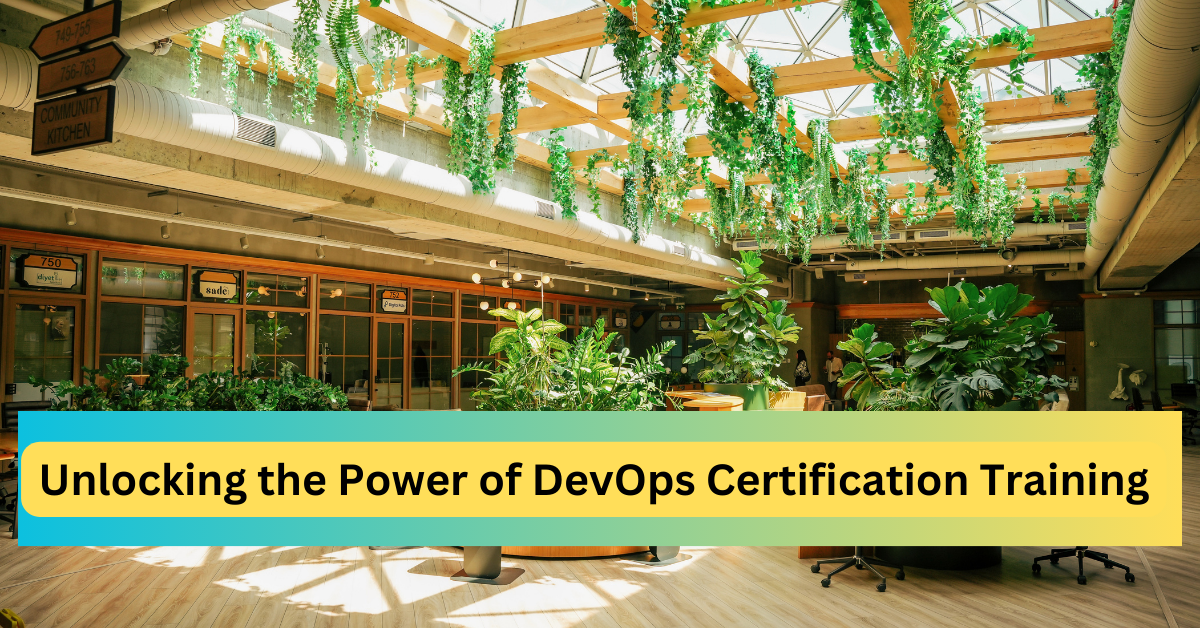Introduction
In the ever-evolving world of technology, Python has emerged as one of the most popular and versatile programming languages. Its simplicity, readability, and extensive libraries make it an ideal choice for both beginners and experienced developers. Python’s applications span a wide range of fields, including web development, data science, artificial intelligence, machine learning, automation, and more. As the demand for Python developers continues to grow, investing in Python Developer Training has become a valuable step for anyone looking to advance their career in tech. This article explores the significance of Python training, key concepts, and practical advice for aspiring developers.
Why Python Developer Training is Essential
Python’s popularity is driven by its versatility and ease of use. It’s a language that can be used for scripting, automation, data analysis, and full-scale application development. Python’s straightforward syntax allows developers to focus on solving problems rather than dealing with complex language rules. As a result, companies across various industries are seeking Python developers who can contribute to diverse projects.
Python Developer Training equips you with the knowledge and skills necessary to build robust applications, work with data, and automate tasks. Whether you’re a beginner with no programming experience or an experienced developer looking to learn a new language, Python training provides a solid foundation for your career in software development.
Key Concepts in Python Developer Training
1. Basic Syntax and Programming Constructs:
Python training starts with understanding the basic syntax and structure of the language. This includes learning how to write variables, loops, conditionals, and functions. Python’s simple and intuitive syntax makes it accessible for beginners, while its powerful features appeal to seasoned developers.
2. Object-Oriented Programming (OOP):
Python is an object-oriented language, meaning it supports concepts like classes, objects, inheritance, and polymorphism. Training programs cover how to use these concepts to design and develop modular and reusable code. OOP is essential for building complex applications and is a core component of Python development.
3. Data Structures and Algorithms:
Effective programming requires a solid understanding of data structures (like lists, dictionaries, and sets) and algorithms (such as sorting and searching). Python training emphasizes these fundamentals, helping you write efficient and optimized code. Understanding data structures and algorithms is crucial for solving real-world problems and performing well in technical interviews.
4. Web Development with Python:
Python is widely used in web development, thanks to frameworks like Django and Flask. Training programs often include modules on building web applications, handling databases, and deploying applications to the cloud. Learning web development with Python allows you to create dynamic websites and backend services that power many modern web applications.
5. Data Science and Machine Learning:
Python’s extensive libraries, such as Pandas, NumPy, Matplotlib, and Scikit-learn, make it the go-to language for data science and machine learning. Python training often includes courses on data analysis, data visualization, and building machine learning models. These skills are in high demand as businesses increasingly rely on data-driven decision-making.
6. Automation and Scripting:
Python excels at automating repetitive tasks, such as file manipulation, data entry, and web scraping. Training programs cover how to write scripts that automate these tasks, improving efficiency and reducing manual effort. Automation is a valuable skill in various industries, from IT operations to digital marketing.
Factors and Considerations for Choosing a Python Developer Training Course
1. Curriculum and Content: When choosing a Python Developer Training course, consider the depth and breadth of the curriculum. A comprehensive course should cover both foundational topics and advanced concepts like web development, data science, and automation. Ensure that the course aligns with your career goals and includes practical projects that allow you to apply what you’ve learned.
2. Learning Format: Python training is available in various formats, including self-paced online courses, instructor-led virtual classes, and in-person bootcamps. Choose a format that suits your learning style, schedule, and level of commitment. Online courses offer flexibility, while bootcamps provide an immersive learning experience with real-time interaction and mentorship.
3. Certification and Recognition: Certifications can enhance your resume and validate your skills to potential employers. Look for courses that offer recognized certifications, such as those from Python Institute, Microsoft, or Google. While certification is not mandatory, it can give you a competitive edge in the job market.
4. Practical Experience: Hands-on experience is crucial for mastering Python. Look for courses that offer coding exercises, real-world projects, and access to coding environments. Building a portfolio of projects during your training will demonstrate your abilities to potential employers and help you stand out in job applications.
5. Cost and Resources: The cost of Python training can vary depending on the provider and the course’s depth. Consider your budget and the resources provided, such as access to learning materials, coding platforms, and instructor support. Some programs offer scholarships, payment plans, or financial aid to make training more accessible.
Practical Tips for Succeeding in Python Developer Training
1. Set Clear Learning Goals: Before starting your training, define your objectives. Are you looking to transition into a new career, build web applications, or enter the field of data science? Having clear goals will help you stay focused and motivated throughout your learning journey.
2. Practice Consistently: Python, like any programming language, requires regular practice to master. Set aside time each day or week to work on coding exercises, build projects, and explore new libraries and frameworks. Consistent practice will reinforce your learning and improve your problem-solving skills.
3. Engage with the Python Community: The Python community is vast and supportive. Join online forums, attend webinars, and participate in coding challenges to connect with other Python developers. Engaging with the community can provide valuable insights, support, and networking opportunities as you progress in your training.
4. Stay Updated on Industry Trends: Python is constantly evolving, with new libraries, frameworks, and tools being developed regularly. Stay informed about the latest trends by following industry blogs, reading documentation, and experimenting with new technologies. Continuous learning is essential to staying relevant in the tech industry.
5. Build a Portfolio: Document your projects and code samples in a portfolio. This portfolio will showcase your skills and experience to potential employers, demonstrating your ability to build functional and innovative applications with Python.
Conclusion
Python Developer Training is a powerful investment in your career, equipping you with the skills needed to thrive in the fast-paced world of software development. By mastering Python’s versatile language, you can unlock opportunities in web development, data science, automation, and more. Whether you’re a beginner or an experienced developer, Python training offers a clear pathway to success in the tech industry. Start your Python journey today and take the first step towards becoming a proficient Python developer.
FAQs
What prerequisites are needed for Python Developer Training?
No specific prerequisites are required, but having a basic understanding of programming concepts and familiarity with another programming language can be helpful. Python is beginner-friendly, making it accessible to those with no prior coding experience.
How long does it take to complete Python Developer Training?
The duration of Python training varies depending on the course and your learning pace. Basic courses can be completed in a few weeks, while more comprehensive programs that cover advanced topics may take several months.
Is certification necessary to work as a Python developer?
Certification is not mandatory but can enhance your resume and validate your skills to potential employers. It can also give you an advantage in the job market, especially when applying for roles that require specific expertise in Python.
Can I learn Python on my own?
Yes, Python is well-suited for self-learning, and there are numerous free resources available online. However, structured training programs provide a more comprehensive and guided learning experience, offering hands-on projects and expert support.
What career opportunities are available after completing Python Developer Training?
Python Developer Training can lead to various roles, including Web Developer, Data Scientist, Machine Learning Engineer, Automation Specialist, and Software Engineer. Python’s versatility ensures strong demand across multiple industries, offering a promising career path.
Python Developer Training can significantly boost your career prospects and provide you with the skills needed to excel in various tech fields. Start your training today and take control of your future in the ever-growing world of Python development.




